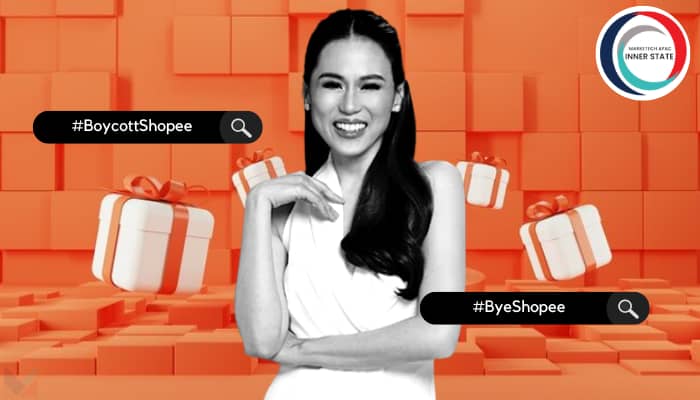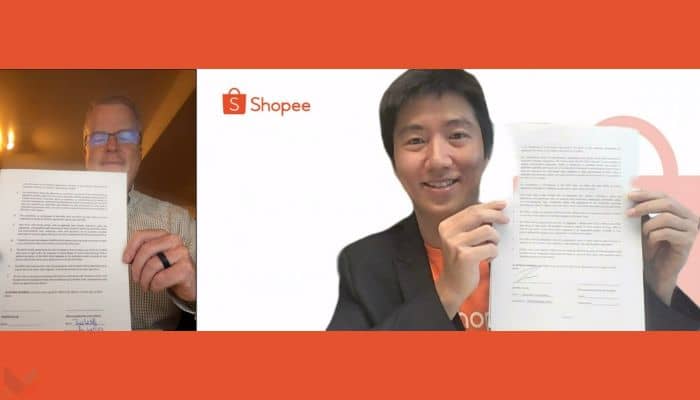The recent brand ambassador announcement by Shopee Philippines has caused a wide range of reactions amongst Filipinos online, with the majority turning against Shopee for tapping local celebrity Toni Gonzaga who is known for her controversial support of now-president Ferdinand ‘Bongbong’ Marcos Jr.
As of this writing, Shopee has defended its decision, stating that Gonzaga was chosen for her ‘mass appeal’, and not for her ‘political views’.
Despite this, clamour and discussion regarding Shopee Philippines’ announcement remained. In light of this, MARKETECH APAC has tapped social media monitoring Digimind to learn more about how the negative flak unfolded–as told by social media data.
Are Social Mentions Equal to ‘Boycott’ Sentiment?
Digimind noted in its data that social media mentions of Shopee spiked following the brand ambassador announcement, peaking at 286,495 on September 29. Said day was the time Shopee Philippines uploaded a teaser video of Gonzaga as the new brand ambassador.
However, despite the large volume of tweets mentioning Shopee, social media mentions, specifically those suggesting the boycott, only took 0.4% of all social media mentions. Despite the small percentage, this still amounts to a fairly sizeable volume of4,000 netizens expressing their opinion to boycott Shopee.

According to Olivier Girard, head of Digimind for APAC, influencers will always be on the verge of receiving scrutiny, especially when being associated with a partisan group or cause.
“While consumers are familiar with the concept of influencers or celebrities endorsing brands, brands now need to have a more stringent process in place when assessing each influencer’s fit for their brand or campaign. Any brand, large or small, runs the risk of facing some level of social scrutiny or backlash when announcing a public figure with uncertainty over the public might receive them,” he said.
Was There a Spillover to Rival Platform Lazada?
Following the negative flak to Shopee, numerous citizens have shown interest in moving to rival e-commerce platform Lazada, which is also one of the most popular e-commerce platforms in the country.

However, Digimind notes that the social media conversations around Shopee still eclipse those about Lazada, showing that resentment towards the former is much stronger than renewed support for the latter. Over the course of September 26 to October 3, Shopee registered around ~2M social media mentions while Lazada only managed to get around ~145k social media mentions. In addition, Shopee’s mentions reached around ~11m users while Lazada reached around ~5.2m.
“Where brand reputation is concerned, it is therefore critical that brands evaluate potential ambassadors closely in the domain of social media,” Girard said, related to how brands should pick their next brand ambassador.
Who and Where the Discussion is Coming From
Digimind noted a great number of discussions related to Shopee come from sellers themselves and users that are greatly concerned about the welfare of the sellers.

A handful of small businesses and online shops have decided to create a business account, with some saying that they would not support a platform that ‘enables [political lies]’, as well as ‘unjust termination of employees’. Netizens have pointed out the irony from Shopee Philippines’ side in retrenching employees in order to ‘optimise’ operations and then contracting a new brand ambassador afterwards.

Girard said that it’s important for brands to obtain consumer sentiments to help them prepare communication contingencies ahead of time, as in the case of Shopee.
“[This] can help brands identify influencer profiles that match their target community and sieve any negative sentiment your marketing and social teams might otherwise miss out on in the macro analysis,” Girard explained.
In the end, the brand ambassador announcement for Shopee Philippines went on as usual, albeit social engagement against them has diminished over time. Time will only tell how these media social sentiments truly play out in the longer run.


















